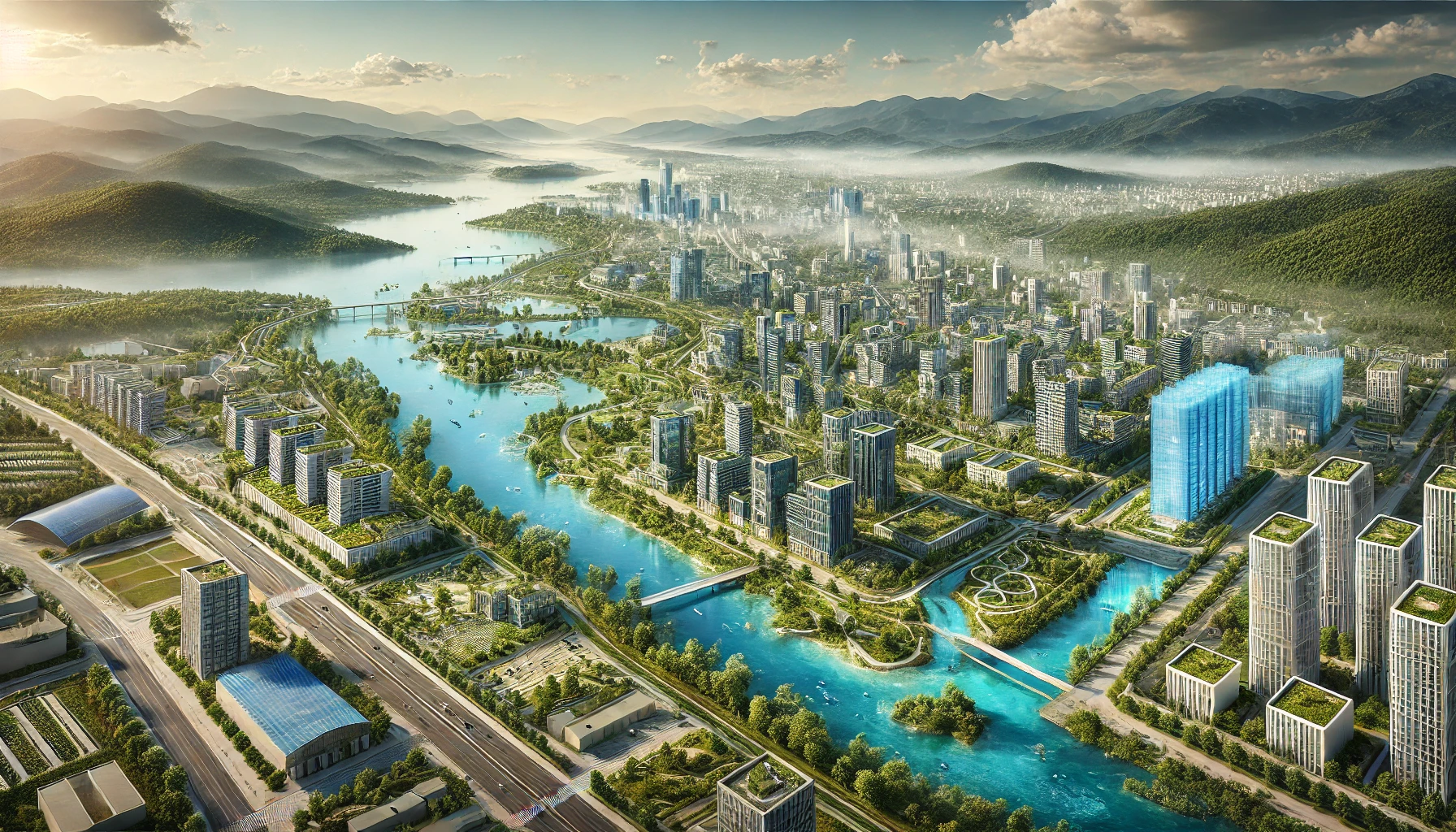Adapting to Climate Change: The Future of Urban Development in the Western Balkans
The World Bank report emphasizes the urgent need for cities in the Western Balkans to adapt to climate change by adopting sustainable, resilient, and inclusive urban development strategies. It highlights pathways for addressing demographic shifts, environmental challenges, and competitiveness to ensure a greener, more prosperous future.

Research published by the World Bank addresses the pressing challenges faced by urban areas in the Western Balkans as they confront the impacts of climate change. The study, conducted by the World Bank team in collaboration with various local and international contributors, emphasizes that cities in the region, including those in Albania, Bosnia and Herzegovina, Kosovo, Montenegro, North Macedonia, and Serbia, are particularly vulnerable to the effects of climate change, which is becoming increasingly evident through more frequent and severe storms, floods, landslides, wildfires, and heatwaves. Having weathered political and economic transformations, these cities now face a new test of resilience as they attempt to adapt to the accelerating threats posed by a changing climate. Over half of the population in this region resides in urban areas, making cities the focal point of climate-related challenges and opportunities for sustainable development.
Urban Growth and Decline Shaping New Realities
The report reveals that the majority of cities in the Western Balkans are relatively small, with only a few having populations exceeding 200,000. Larger cities, however, are experiencing population growth, while smaller cities face decline, which presents a complex dynamic in managing urban infrastructure and services. These demographic shifts, combined with low population density and sprawling urban development, are placing increased pressure on already strained resources. Compounding these challenges are the region’s complicated spatial planning systems, inadequate waste management practices, and insufficient public infrastructure, all of which are exacerbating the risks posed by climate-related disasters, particularly for vulnerable populations who are disproportionately affected. The Western Balkans is one of Europe’s most vulnerable regions to climate change, with urban areas being especially hard hit by extreme weather events. The 2014 floods in Sarajevo, Bosnia and Herzegovina, were the worst in 150 years, severely affecting two-thirds of the country’s municipalities and causing economic damage amounting to 15 percent of the national income. The cities of neighboring Serbia also suffered significant losses, with more than 50 lives lost. Urban development in the region is also a contributor to global climate change, particularly through carbon emissions, particulate matter, and methane emissions.
Pathways to Green Urban Development
The report outlines the significant challenges of addressing climate change in the region, but it also presents potential pathways for cities to adapt. One of the key recommendations is for cities to adopt green, resilient, inclusive, and competitive development strategies. For green development, the report advocates revisiting land-use policies to limit urban sprawl and promote more sustainable, compact growth in cities, particularly those experiencing population shrinkage. This strategy would involve promoting mixed-use, high-density urban development, which not only reduces emissions from transportation but also enhances public service delivery efficiency. Cities with shrinking populations, the report suggests, have an opportunity to prioritize environmental protection, social equity, and sustainability in their urban planning efforts. Nature-based solutions, such as increasing green spaces and blue spaces (e.g., parks and water bodies), are crucial to improving air quality, absorbing carbon emissions, and mitigating the impacts of heatwaves, which are becoming more frequent in the region. Compact cities, the report notes, generally use less energy, emit fewer pollutants, and often enjoy higher levels of economic growth compared to their more sprawling counterparts.
Building Resilience Against Future Disasters
Resilience is another critical focus of the report, with cities encouraged to invest in disaster preparedness, improve critical infrastructure, and implement early warning systems to better manage climate shocks. The integration of water, waste, and risk management systems is emphasized as a means of building resilience against multiple hazards, such as floods and droughts. Nature-based solutions, like green and blue infrastructure, are highlighted as essential components of a resilient urban environment, particularly for vulnerable communities that are often the most affected by climate-related disasters. In addition to infrastructure improvements, the report stresses the importance of addressing social inequalities, particularly through inclusive urban planning processes that involve community engagement and promote social cohesion.
Fostering Competitiveness through Innovation
The report underscores the importance of competitiveness in Western Balkan cities, which must work closely with the private sector to drive economic growth while addressing climate change. Public-private partnerships, green bonds, and other financial instruments are recommended as tools for funding the transition to greener, more resilient cities. The report highlights the need for cities to support industries that can compete in both regional and global markets, while also promoting innovation and sustainable urban development.
Shaping a Sustainable Urban Future
The decisions made by policymakers in the Western Balkans today will have profound implications for the future trajectory of their cities, not only in terms of climate resilience but also in their broader economic and social development. By adopting a comprehensive approach that integrates green growth, resilience, inclusivity, and competitiveness, cities in the region can reshape their urban landscapes and chart a path toward a more sustainable and prosperous future.
- FIRST PUBLISHED IN:
- Devdiscourse
ALSO READ
South Africa’s G20 Presidency Prioritizes Sustainable Development, Climate Action, and Debt Solutions
Climate Change's Fierce Grip on Philippine Typhoons
The Alarming Impact of Climate Change on Global Crop Yields and Food Security
UNDP and Qatar Partner to Harness Digital Innovation for Sustainable Development
Shape-shifting Birds: Australia's Avian Response to Climate Change










